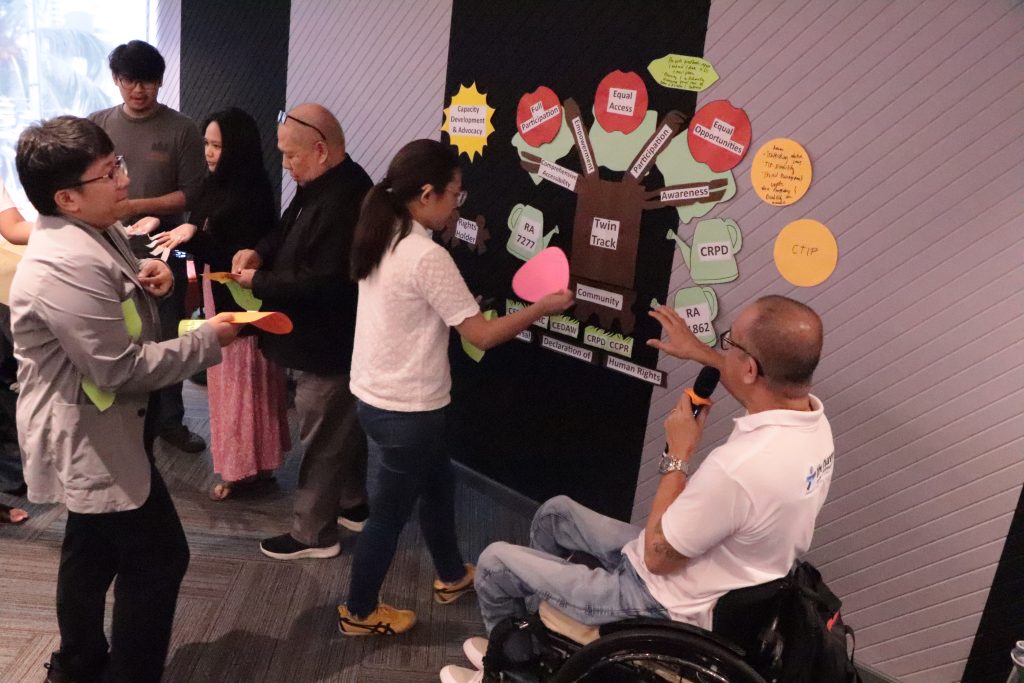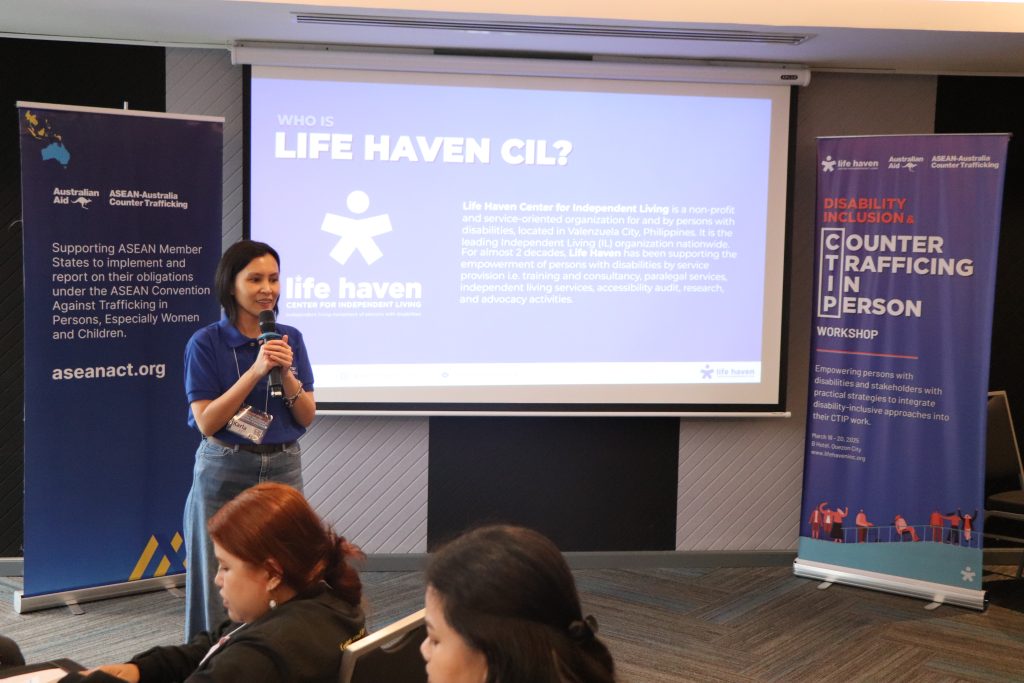As the Executive Director of Life Haven Center for Independent Living, a non-profit organisation of persons with disabilities in the Philippines, Karla Henson’s leadership story demonstrates that true vision comes from leading with authenticity.
Born Metro Manila in the Philippines, Karla grew up in a household full of strong women, with a firm but fair mother and two sisters. Throughout her childhood, Karla and her younger sister progressively lost their vision due to a rare genetic eye disorder called Stargardt.
“When my vision started to decline, my mom retyped all my books and printed them in large print. My eldest sister darkened all the lines of my notebook so I could see everything”, she recalls.
However, Karla still remembers the discrimination and difficulties she faced, “When I was applying for college, the university initially refused to let me use a magnifying glass for the entrance exam. My mom had to fight for my right to use it”, she recounts.
Graduating from economics and legal management degrees, Karla pursued her own business ventures – including in events management – while juggling a young family.
“Because of my low vision, it helped my children to read early on. I couldn’t read labels, I would ask them to spell it for me. I could feel around their face to feed them and cut their nails. It’s different, but we managed. Because of their exposure to different abilities, my kids are very compassionate and polite, especially towards women. I hope I had something to do with that.” she explained.
Karla was first introduced to Life Haven in 2008 when she was invited to participate in a survey for persons with disabilities. “I met the founder Abner, and then Executive Director Doc Jun, and another colleague, also called Jun. Since we are from Valenzuela, a city in Metro Manila, we were grouped together. And that was the time that we hung out,” she remembers. Initially, her involvement was more social than advocacy-driven, but the seeds of her future role were planted.
It wasn’t until 2020, during the pandemic, that Karla became more active in Life Haven’s projects, taking on more responsibilities, leading to her nomination four years later as Executive Director. Karla says she accepted with a mix of excitement and hesitation, but it was the former Executive Director that encouraged and gave her the confidence to accept, “I was hesitant because I enjoyed doing projects, like research and going to communities.”
Drawing on her ‘firm but fair’ family values, Karla believes her leadership style is shaped by this, “I consult my team about their support needs and ensure they are accountable for their tasks. I also make sure that we don’t use our disability as an excuse not to be able to do things or to submit things.”
She explains that changing social norms begins with changing mindsets, especially of the younger generation, because ‘people do not need to be fixed to be part of society’:
“Independent living doesn’t mean you live alone or don’t need help – it’s about empowerment to decide for yourself. If a personal assistant is needed, that assistant will never decide on the person’s behalf, but will follow the instructions of the person with disability. People still have bias when they see someone in a wheelchair. So, there’s still a long way to change that mindset.”
Life Haven’s grant through the Australian Government funded ASEAN-Australia Counter Trafficking program works towards changing mindsets by bridging the gap between disability advocates and policymakers working on countering human trafficking in the Philippines.
Karla emphasises the need for more Organisations of Persons with Disabilities to work on this issue. By empowering and equipping persons with disabilities with support and resources that reduce their vulnerabilities, then their likelihood of being deceived and trapped in trafficking situations is minimised.
To address this, Life Haven supported by the program brought together, for the first time, counter-trafficking agencies and disability organisations in Quezon City to discuss a plan of action to address this intersectionality (18-20 March 2025).
Followed by a two-day workshop (22-24 April 2025), focussed on the tools for collection and evaluation of disability and trafficking data, with representatives from member agencies of the Philippines Inter-Agency Council Against Trafficking in Persons (IACAT).

As we celebrate International Women’s Day 8 March, Karla’s leadership journey highlights inclusive representation as key to achieving gender equality. “If we’re not part of the conversation, nobody would know what our needs are”, she asserts. By ensuring that diverse voices are included in conversations about gender equality, we can truly see beyond barriers and unlock opportunities for all women and girls, regardless of their abilities.

—
The UN’s theme for International Women’s Day 2025 is “For ALL women and girls: Rights. Equality. Empowerment.” This theme emphasises the need for inclusive action to ensure equal rights, power, and opportunities for all women and girls, and highlights the importance of empowering the next generation as catalysts for lasting change.
For more information about Life Haven, visit www.lifehaveninc.org